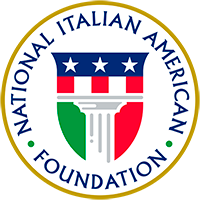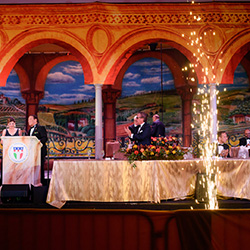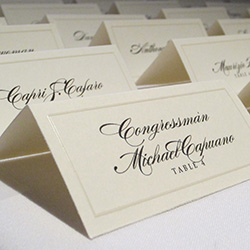
- About
-
NIAF Leadership
NIAF Board Officers
NIAF Board of Directors
NIAF Staff
Regional Leadership
- Join
- Events
- Programs
- Partnerships
- Culture
- Support
- News & Media
CLOSE- About
- Join
- Travel
- Events
- Programs
- Partnerships
- Culture
- Support
- News & Media
- Shop
- Join NIAF Today (OLD PAGE)
- Contact Us
Oggi 7 Article in America Oggi by Stefano Vaccara ( July 1, 2012)FOR IMMEDIATE RELEASE
Contact: Elissa Ruffino (NIAF) 202/939-3106 or elissa@niaf.org
“NIAF, I will re-launch you”
Interview with John Viola, the new Chief Operating Officer of the National Italian American FoundationWhen we have interviewed a leader of the Italian American community in the past, it has never happened before to find out that he was younger that the journalist interviewing him.
Though it is true that time passes also for journalists, even if we were 47 years old 10 or 15 years ago we could not have imagined having a conversation with a member of the NIAF leadership who was 20 years younger than us!
The most important and respected organization of Italians in America last February appointed as its Chief Operating Officer John Viola, 28 years old, born in Brooklyn from a family originally from Campania and Sicily, tasking him with re-launching and readying the foundation of Italian Americans based in Washington to face the new challenges of the 21st century.
Does John Viola represent for NIAF what the mayor of Florence Matteo Renzi represents for the Bersani’s Democratic Party? No, let’s not get carried away. John is not cleaning house at NIAF and he is instead very grateful towards those who brought him to NIAF.
“I knew I was going to have the opportunity to arrive at NIAF at the right time. Joe Del Raso (NIAF’s President) has been my mentor for a long time, so having the opportunity to work together for an organization which we both care for immensely was too good to pass.”
No, John will not bring a revolution to NIAF, but he has certainly been appointed to bring to life a new, fresher and more modern vision to implement a new strategy for the most influential organization of Italian Americans — so NIAF can have more of an impact, and not only in Washington.
John and I met at Ferdinando’s — the old Palermitano café on Union Street in Brooklyn. We drink iced coffee and nibble hot panelle as good as the ones in Mondello, while I try I understand what this young Italian American wants to do for NIAF and for the Italian community in America.
Viola was born 28 years ago in Brooklyn, “in Williamsburg on the corner of Frost Street and Graham Avenue,” as he says with pride. A few years after his birth, the family moved to Chatham, N.J., where John grew up with his father Vincent Viola, his mother Teresa D’Angelo, and his two younger brothers Michael and Travis. “I missed the Brooklyn Italians in Chatham, even though we used to visit often. Grandma and Grandpa used to live in Williamsburg, and we were regulars at the Feasts of the Madonna della Neve and Madonna del Giglio.”
John’s family from his father’s side is from Sanza, in the Salerno province. From his mother’s side, Grandpa Michele hailed from Palermo, Grandma from Pallo del Colle (Bari).
John’s father, Vincent Viola, is a successful businessman, who made a fortune in the world of finance when he worked on Wall Street. But John’s family is not affluent, and Vincent became successful and wealthy only through many sacrifices, lots of schooling and hard work. And this happened only after he married Teresa.
After earning his BA at Fordham University (in anthropology and sociology), John went back home to Brooklyn to also take care of the home where his grandmother Vincenza Viola lived in.
In Brooklyn, young Viola established a non-profit foundation to support Catholic public schools, through which he organized cultural itineraries in Brooklyn. He later founded a private Catholic school in Bushwick (the Pope John Paul II Family Academy) to help Catholic families financially.
John was 11 years old the first time he went to Italy, and the first city he visited was Venice. He has been back to Italy every year since then, mostly traveling to the South. Currently John lives between Washington and New York, where his girlfriend Nicole Di Bona – of Italian origins herself – resides.
What we share here is not a real interview, with questions and answers. We had a conversation with John more than an interview, a surprising conversation that we think deserves to be given ample visibility. Here we highlight the salient points the young manager made, those which were more significant for his vision for NIAF and the whole Italian community.
Viola immediately brushes off the woe-is-me mentality and shows the pride of those who feel are on top of the American social ladder: “The old way of thinking in the community is no longer working. First of all the Italian American community has accomplished any result possible in this country— in show business, in finance, in the scientific field, in sports as in academia and certainly in politics as well. Secondly, we don’t vote as a block and this is an advantage as it proves our political maturity because it means that we Italians of America do not follow any ideology.”
While John speaks, he seems guided by his feelings but also by his rigorous studies, which prepared him for his challenging task: “The old stories that we would all be sons and daughters of an ‘amoral familism’ never convinced me—the sociologist Banfield was wrong. We cannot believe in that old story, we Italian Americans have demonstrated to have great civism. We know very well how to be socially active. And we could be an example for Italy as well, to show what Italians can accomplish when they are offered the opportunity to fulfill their potential. We Italian Americans are the right role model to show how to be successful in this country.”
John Viola brings to NIAF also a global vision for what it means to be Italian. “For this reason, I think NIAF can no longer play the role of advocacy group, but we need it to open up new opportunities between Italy and the United States. We live in a globalized world and from America we can help Italy to be more globally competitive.
“Let us think about how important are expat communities for some countries—I think about the Chinese and their networks they create all over the world. We can do the same. There are 60 million Italians who live in Italy, but there is also a diaspora of 200 million Italians outside of Italy. Citizenship and geography are no longer connected. Think about the new Fiat 500 — I immediately bought one when it came out. I can only imagine how many others will do as I did in America and in the rest of the world. This is about recognizing what being Italian means, and we are the ambassadors of that ‘brand.’ Transforming NIAF in a global institution is a very ambitious objective—I have the vision to do it, even though I will need some time. Rome was not build in a few days…NIAF has to continue doing all the right things it is already doing, but at the same time it has to have broader objectives.”
Viola respects the work of Italian diplomats in the United States, but he also has some important suggestions for them. “Without a doubt, Italy has its embassies, and they do important work to promote this brand involving the Italian American community as well. We represent an important addition to the global promotion of Italy. I would, however, like to suggest to the Italian diplomatic corps to not only engage us as a means to penetrate in the United States. We also need to be engaged as Italians. What I mean by this is we should not only represent an opportunity to sell Italian products, but we should also be included as people who are an integral part of ‘being Italian’ and want to work together to give Italy a significant edge.
Being Italian—“Italianness”—is something Viola often talks about. He defines it this way. “Being Italian—‘Italianness’—is an enticing concept, but what does it mean to be Italian? For me, it is a state of mind — there are 20 regions where this state of mind manifests itself in different ways, and there are at least another 20 countries in the world where this state of mind exists. Maybe it exists in different ways but they are all part of the same Italian mosaic. We are part of this ‘Italianness’ that betters the world.”
Viola seems knowledgeable about Italian social challenges, and for some he offers “Italianness” as a possible solution. “To be frank, there is an enormous elephant in the room of ‘Italianness’— the birth rate of Italians in Italy is one of the lowest in the world. Italy has to do something to improve it. However, ‘Italianness’ in the world will continue to expand because we are over 200 million and we continue to grow.”
We say to Viola that to feel Italian, people need to know the Italian language better. The young NIAF manager gets it immediately, and immediately responds before we can ask the question. “Certainly the issue of the language is very important and I understand certain rebukes that Italians make to Italian Americans because they have forgotten their language. We, however, know how that came about. During World War II, Italian Americans were forced to forgo their language, which was considered an enemy language. My Grandma’s first language was Neapolitan, but she refused to speak it in public. They told her she should never do it in America. So while her children do not speak Italian, her grandchildren want to get it back. Reclaiming the language is crucial and it is part of a double strategy, cultural and utilitarian. We have to look to the Greeks who in America never abandoned their language.”
And here is the solution proposed to reclaim the grandparents’ language. “In order to have Italian Americans speak Italian again, parents have to be more involved. We need to change the mentality and transform the branches in a tree and be truly connected. Knowing the language is also useful for business opportunities in Italy. Exchange programs can also help, because in order to be really able to master the Italian language people have to send their kids to spend time in Italy. And, vice versa, Italian kids can come here to learn English. We are genetically ready already for our language which would immediately become part of our families again.
“Obviously also organizations like Lago Del Bosco that were spearheaded by the Cuomo family are very important to having our kids here in America speak the language. However, the complaints from Italy that we Italian Americans did not preserve the language are valid, and we need to work to bring it back. Because our language is the source of our identity.”
The Italian community in America was not always united, on the contrary…”The relationship with Osia and Unico and other Italian American organizations are crucial — John Calvelli is doing a great job to coordinate work with these organizations. However, at the same time, as it happens in Italy where there are scores of political parties, it is one of our faults that we break up in too many groups and factions. NIAF, however, in the Conference of Presidents of the Italian-American organizations, has demonstrated that it is possible to talk and work well together for the greater good of the community.”
At some point during the conversation, after enjoying the last delightful panella, we throw on the table mafia and past criticism of Italian-American organizations against Hollywood and showbiz that never seems to cease portraying Italian Americans like a caricature. Here is another example on how John Viola proves to possess a more modern vision for NIAF.
“What about the age-old issue of the Sopranos and anti-defamation? I have a lot of respect for what the Italian American One Voice Coalition does to defend Italian Americans from defamation and stereotypes. Having said that, this is not the NIAF’s mission. We have a different strategy, even if we are all united in our passion for what can be done. Together we stand, it is true—but NIAF also has other things to think about…. On the issue of anti-defamation, when we go up in arms without first looking for dialogue, we do a disservice to the community. We have to be more involved and open to discussion on any issue. When we pick and choose what issues we talk about, we negate how important it is to have a larger conversation about any and every issue. I look at the history of other communities like the Jewish one and I see that it is told in all its aspects. We can certainly do the same and work constructively with those who want to describe the experience of Italians in America in an accurate and comprehensive way, including our black sheep.”
Here is the strategy Viola wants to implement at NIAF. “NIAF’s innate role is to dedicate itself to promote something, more than to fight against someone. I do not believe we should be silent when something does not work, but we also have to be more thoughtful and continue to promote all the good we stand for. With this I do not mean to say that past generations made a mistake when they reacted against discrimination and defamation. I understand that for many generations of Italian Americans it was difficult to make it when faced with so many adversities and prejudices, and that once they achieved success it is natural that many of these generations have remained sensitive to certain difficulties they met and that they have tried in every way to protect their children and grandchildren. But, right now, younger generations have an easier task; we are completely integrated and, as I said in the beginning, we are an integral part of the American society and of its success.”
For John Viola the scholarship award process remains one of the main objectives of NIAF, but the young Italian-American manager also intends to expand these same objectives and the strategies needed to achieve them. “Scholarships have to remain the principal objective where NIAF has to concentrate its work and resources. We have to continue to expand on this front. Giving scholarships based on merit, as we have been doing so far, is great, but we also have to take a qualitative leap forward and help the youth get job placements. So we have to organize and promote internships as a channel towards job placements. We have to utilize the network of successful Italian Americans in business and academia for this objective. Maybe this could seem a little extreme but I want successful Italian Americans to begin to choose more young Italian Americans for certain jobs so they can give them a chance to replicate their own success.”
What is most striking in the conversation with John Viola is how he looks at the past and the history of the Italian community in America for initiatives he can adapt to today’s world. “We also have to think that NIAF scholarships and internships should represent what societies of mutual aid were for our grandparents and grand-grandparents when they arrived here in the United States. These societies over 100 years ago helped the immigrants that had just arrived find lodging, job opportunities, schools for children… Everybody helped everybody to make it. NIAF has to do the same and promote this spirit of solidarity between Italian Americans and tailor it to the 21st century.”
 NIAF 2023 D.C. Gala Review
NIAF 2023 D.C. Gala Review  NIAF 2023 Arizona Gala Review
NIAF 2023 Arizona Gala Review Government Affairs Events
Government Affairs Events

























